CIDETEC Surface Engineering participates in two new European projects focused on Advanced and Sustainable Manufacturing
BIO-UPTAKE and SURE2COAT, aligned with the circular economy and smart manufacturing
The objective of the European Union is to keep the continent’s industrial production at the forefront globally (in 2019, the European manufacturing sector employed 30 million people and accounted for 22% of the global workforce), differentiating itself from the competition through its commitment to move towards more advanced (digital) and sustainable manufacturing, adapted to the challenges posed by climate change. The transition towards an economy with a neutral carbon footprint is a significant challenge for the whole sector, which must adapt to the circular economy while remaining competitive. CIDETEC Surface Engineering is involved in the BIO-UPTAKE and SURE2COAT projects, which are both funded by the “Made in Europe” Public-Private Partnership, which brings together corporations, research centres, universities, social actors, and manufacturing firms.
BIO-UPTAKE – BIOcomposites in smart plastic transformation processes to pave the way for the large-scale UPTAKE of sustainable bio-based products– aims to increase the use of bioplastic compounds in the European manufacturing industry by 39%, using digital twins to enable ecological transformation. Flexible manufacturing processes will be developed to produce bio-based plastics for the construction, medical, and packaging industries, based on the combination of bio-based synthetic fibres reinforced with biopolymers that are readily adaptable to changing market needs. From the beginning of the design process, sustainability standards will be incorporated, resulting in products with more than 75% bio-based content and a 33% reduction in greenhouse gas emissions. CIDETEC Surface Engineering, in collaboration with the French company SPECIFIC POLYMERS, will contribute to this initiative using its patented 3R thermosetting resin technology in its bio-based version. The use of this resin in the production of thermosetting composite components enables the development of Reprocessable, inherently Recyclable, and Repairable composites (that is why the technology is known as “3R”). CIDETEC Surface Engineering will also produce what we refer to as “enduring prepregs. These are cured or partially cured prepregs that are non-perishable and have the advantage of being able to be stored at room temperature. The chemistry of the material will be adjusted both to optimize processing in pre-preg lines and subsequent thermoforming. The project is coordinated by the Spanish research centre Fundación AITIIP with the participation of 13 partners from 6 countries of the European Union.
For its part, the SURE2COAT project – Sustainable surface treatments of complex shape components for trans-sectorial industrial innovation– aims to increase the use of aluminium through the development of surface treatments and innovative production technologies. Aluminium is prone to corrosion in hostile environments, a barrier that is anticipated to be overcome in order to use this material in applications such as electric motors, thermal systems, and energy storage units, for which an increase in the use of lightweight materials such as aluminium is required to make systems more energy efficient. In addition, it aims to lower the carbon impact by utilising more energy-efficient production methods and designs that provide higher energy efficiency. In this project, CIDETEC Surface Engineering is going to develop the electrophoretic lacquering process to produce a coating (anaphoretic e-coating) to protect aluminium casings from corrosion, which in the future will be used in electric motors in processing facilities in the food industry, currently made of steel. With the change in material, as well as with the manufacturing technologies that will be used and their integration, it is expected to achieve up to 50% savings in energy consumption during use. The coating must also resist the aggressive steam cleaning processes used in the food industry. The coating chemistry has been chosen so that it can comply with the REACH regulation and the application process to be used is designed not to cause significant direct or indirect environmental damage. The project, led by the Norwegian research centre SINTEF Industry, also considers the integration of the technology in current production lines. In addition to SINTEF and CIDETEC, another 10 partners from 7 European countries participate.
Both projects are part of the Horizon Europe program in the calls HORIZON-CL4-2021-TWIN-TRANSITION-01-05 (BIO-UPTAKE) and HORIZON-CL4-2022-TWIN-TRANSITION-01-02 (SURE2COAT) and are funded by the European Commission. Between them, the budget and grant support for CIDETEC amounts to €1,019,062.
By participating in these two projects, CIDETEC Surface Engineering shows its commitment to the development of sustainable materials that contribute to making the European manufacturing industry more competitive and sustainable, as well as making Europe a space for (more) sustainable products and services and with more circular industries.









